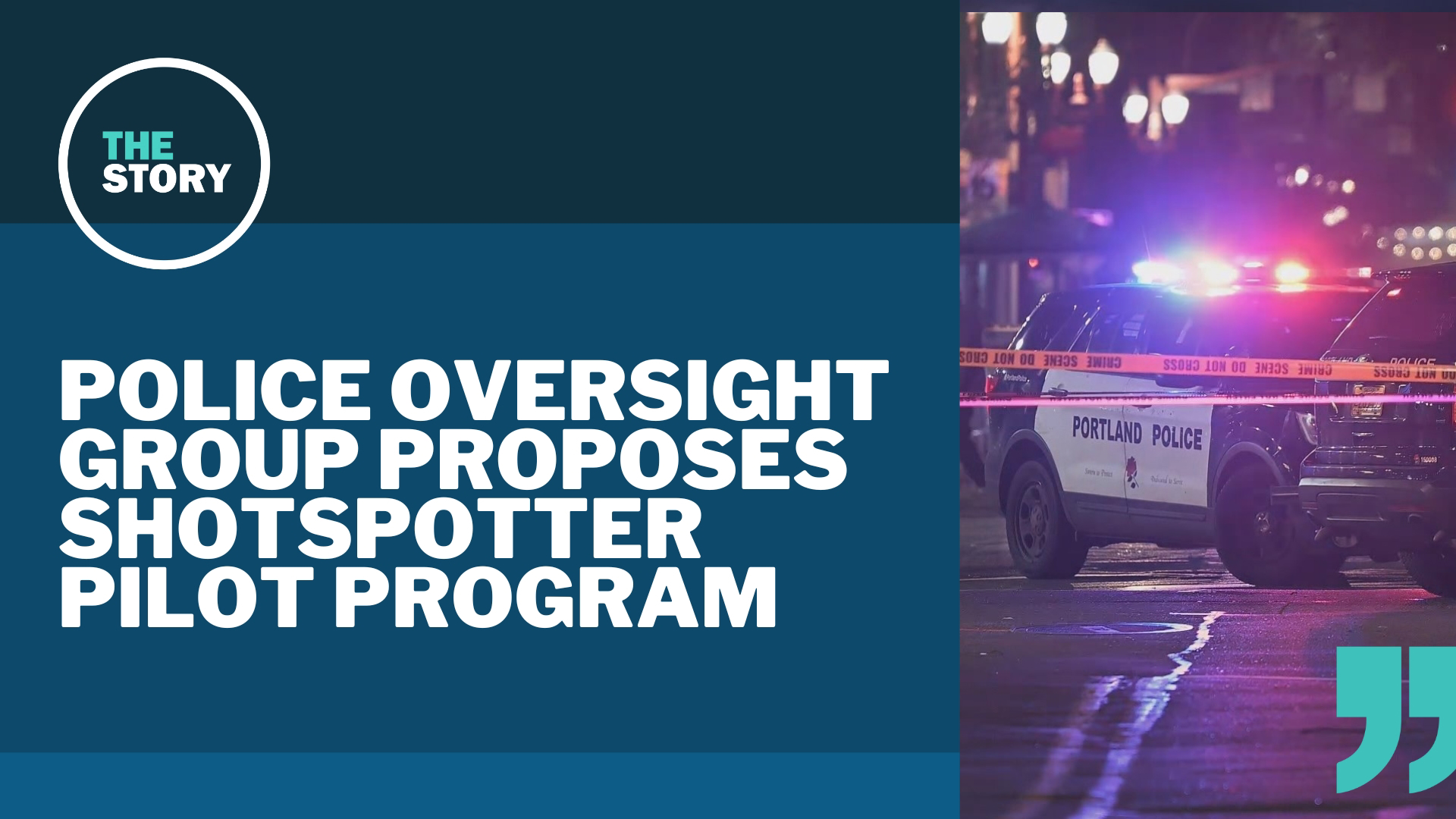PORTLAND, Ore. — A Portland police oversight group is recommending that the city pay for gunshot detection technology to help officers respond to a multi-year rise in homicides and gun violence.
The Focused Intervention Team Community Oversight Group, or FITCOG, determined that Portland leaders should pay for and use ShotSpotter sensors "throughout all areas of Portland representing high-risk areas for gun violence," based on crime data.
The ShotSpotter service uses a system of audio sensors that listen for gunshots, alerting police when and where shots are fired.
Now that the recommendation has been submitted, Portland Mayor Ted Wheeler and city council members will need to decide if the gunshot detection technology is worth the investment and police resources.
FITCOG recommended a pilot program of the technology, which would place sensors on street poles or buildings. The oversight group recommended widespread implementation. ShotSpotter charges by the square mile of coverage.
At a rate of $65,000 to $90,000 in annual costs per square mile, plus initiation fees, a 10 square-mile coverage area could cost Portland up to $1 million per year.
FITCOG, ShotSpotter and some Portland Police Bureau (PPB) members said the technology would give officers more data — helping them respond to a higher percentage of shootings, improving response times, helping shooting victims and finding evidence more quickly.
"A lot of 911 calls, we’re just going to get there quicker [with ShotSpotter] — so you have a better chance to get there, potentially see a vehicle leaving the scene, seeing a shooter run on foot, get information quicker out to other responding officers, set a perimeter, potentially provide life-saving measures," said PPB Sgt. Kenneth Duilio during a public FITCOG meeting Thursday.
The FITCOG recommendation report to the Mayor’s office says most gunshots are not called in through 911, advocating that ShotSpotter technology would help fill that gap.
“Gunshot detection by itself is not a panacea for gun violence, but if used as part of a comprehensive gun crime response strategy, it can contribute to a reduction," the report says.
Wheeler and Portland commissioners will now evaluate the recommendation and determine how much value ShotSpotter would provide the city.
ShotSpotter is currently used by more than 130 cities and police departments around the country, according to the company.
While FITCOG's report says the technology would help officers find evidence and solve criminal cases, reviews like this one from the City of Chicago's Office of Inspector General found that ShotSpotter alerts rarely led police to evidence of a gun-related crime. That happened about 9% of the time, according to the review.
During a public meeting Thursday, community members asked if there are enough Portland police officers to respond to all the ShotSpotter alerts, referring to well-publicized staffing shortages.
The FITCOG report says ShotSpotter would allow the bureau to concentrate resources in a more data-driven way, reducing waste.
“You have a staffing issue, a limited resource issue, want to make sure you get full utility out of the service, putting it where it’s most needed based on historical review of gunfire," said Ron Teachman, a former police chief who now represents ShotSpotter.
The FITCOG report also responded to equity concerns shared by Portland community members who worried about the gunshot detection sensors being placed in some communities and not others, leading to potential over-policing.
FITCOG members said the commission "recognizes marginalized communities remain disproportionately impacted by BOTH over policing and inter-community violence," but ShotSpotter can help "limit" unnecessary encounters with police.
The report recommends a specific Portland-centric framework for the usage of the technology, taking civil rights protections and ongoing data analysis into account, as well as implicit bias training for responding officers.
FITCOG also advocated for Portland leaders to develop a "Violent Impact Players" list for "serial trigger pullers" in order to reduce gun violence, identifying and focusing on the small number of people who account for a "disproportionate number of gun offenses" through criminal safety and threat risk assessments.
In 2017, the Portland Police Bureau agreed to ban its list of designated gang members, and the report recognized the State of Oregon would not allow gang affiliation grading, unlike the Tampa, Florida report the concept was based on.
FITCOG recommends the city set guidelines and limitations on the use of ShotSpotter data in criminal prosecution and gun violence cases, and said there's a need for a "high level of public transparency" regarding ShotSpotter data.

